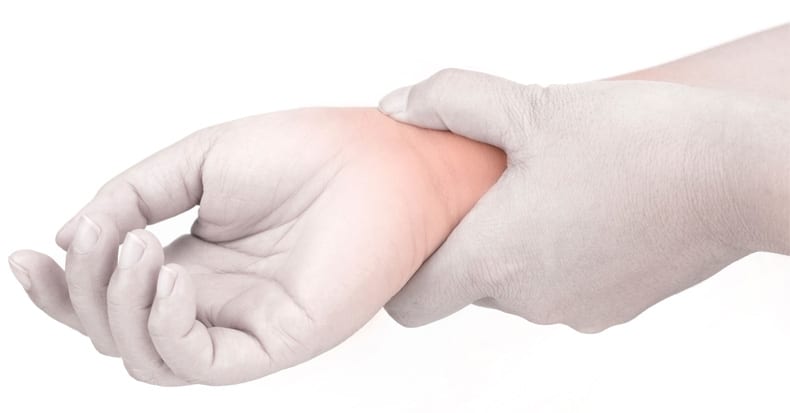Carpal tunnel syndrome (CTS) is one of the most common causes of pain, loss of work, and work-related disability in the United States. It affects approximately 50 per 1,000 persons in the general population and the average lifetime cost of CTS (including medical bills and lost work time) is estimated to be about $30,000 per each injured worker. In 2003, there were more than 3.8 million visits made to healthcare providers for CTS.
The diagnosis of CTS is based on the patient’s complaints, examination findings, and special testing such as electro-diagnostic tests (like Electromyography or EMG). The success or failure of treating CTS rests on the accuracy of the diagnosis. Often, patients with CTS will present after surgery complaining of the same symptoms they had prior to surgery, such as numbness and pain in the index, 3rd and 4th fingers, weak grip, sleep interruptions, and so on, only to find that the median nerve is pinched higher up than the wrist, such as in the neck or elbow.
Treatment failure, as well as an increased likelihood of developing CTS, may also result from the presence of other "risk factors." These include (but are not limited to) advancing age (>50 years old), females > males, and the presence of diabetes and/or obesity, which often coincide. Other risk factors include pregnancy (due to hormonal shifts and fluid retention), certain occupations (highly repetitive), strong family history of CTS, specific medical conditions (like hypothyroidism, autoimmune and rheumatologic diseases), certain types of arthritis, kidney disease, trauma, anatomic predisposition of the wrist and hand (shape and size), infectious diseases, and substance abuse. The difficult thing in treating CTS is when multiple factors exist – like a female over 50 with a highly repetitive job and who is also obese. Obviously, the "best" treatment here would include weight management, and possibly workstation modifications, in addition to the in-office treatment approaches. Patient compliance or following the doctor’s recommendations is VERY important such as wearing the wrist splint at night, doing the carpal tunnel stretch exercises, weight management / dietary recommendations, and so on. Therefore, successful treatment for CTS relies on a balance between the patient and provider communicating about ALL the treatment options (surgical and non-surgical) so the patient can make an informed decision. Since each patient is unique, the treatment approach must be tailored to that individual and may require, as previously stated, a number of treatment strategies aimed at patient-specific issues.
Chiropractic is in a unique position for managing the CTS patient. This is because doctors of chiropractic look at the whole person, not just the wrist, and offer the LEAST INVASIVE approach. Many times, there are issues in the neck, shoulder, elbow, and forearm in addition to the wrist/hand that MUST BE carefully assessed in order to obtain a successful, satisfying result for the patient. They also consider the many "risk factors" described above and can assess or coordinate services with other healthcare providers so the many conditions described previously can be properly evaluated. So, the question remains, what do chiropractors do when treating a patient with CTS? Treatment often includes "the usual" such as wrist splinting during sleep, work modifications, and anti-inflammatory approaches (ice cupping, herbal, etc.). Unique to chiropractic are manipulation or adjustments (often to the neck, shoulder, elbow, forearm, wrist, and hand), muscle tendon release techniques (possibly using tools to breakup adhesions, scar tissue, and the like), exercise training for the involved areas including the hand/wrist, as well as dietary strategies for weight management, metabolic syndrome (pre-diabetes), and so on.



